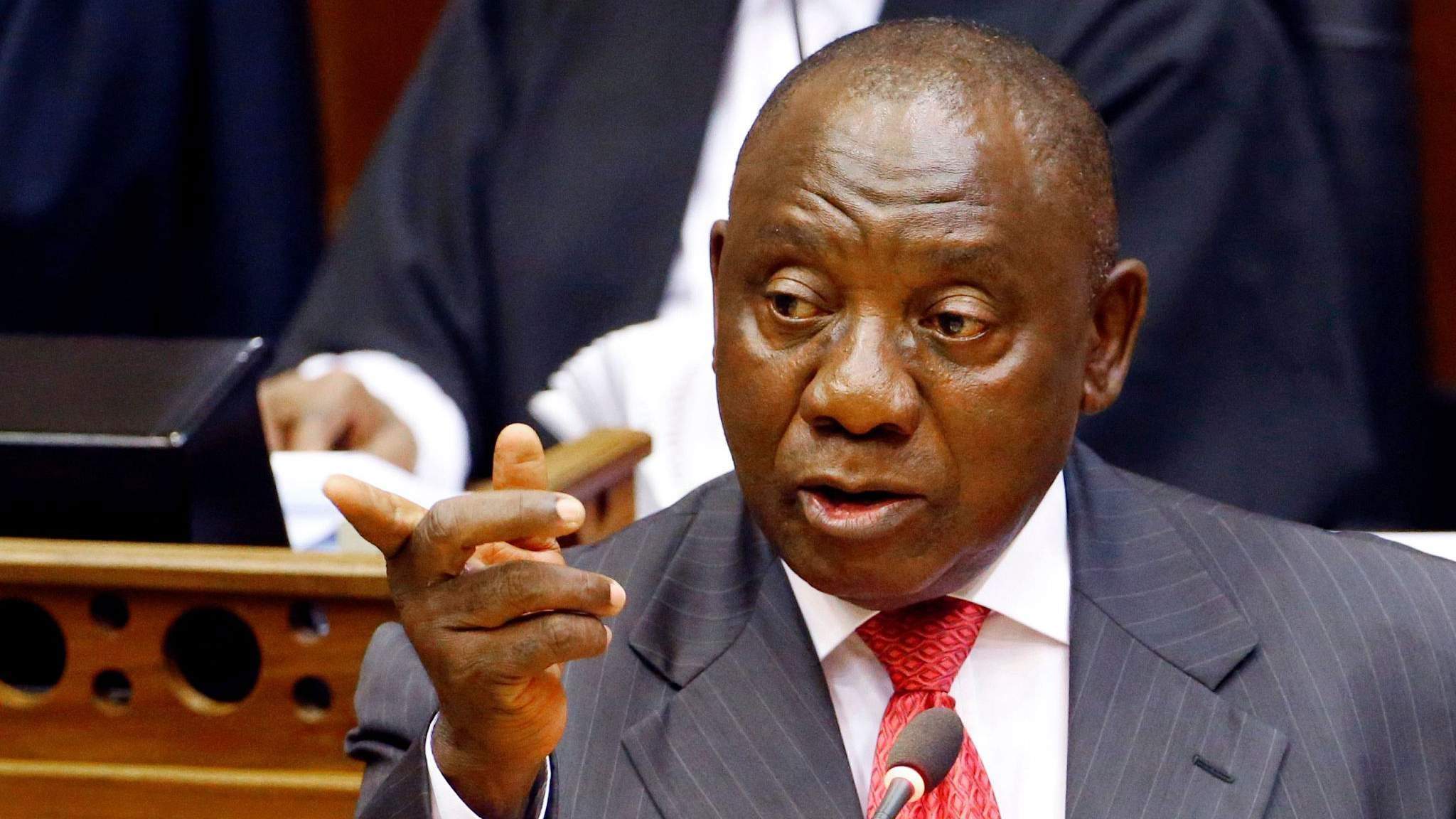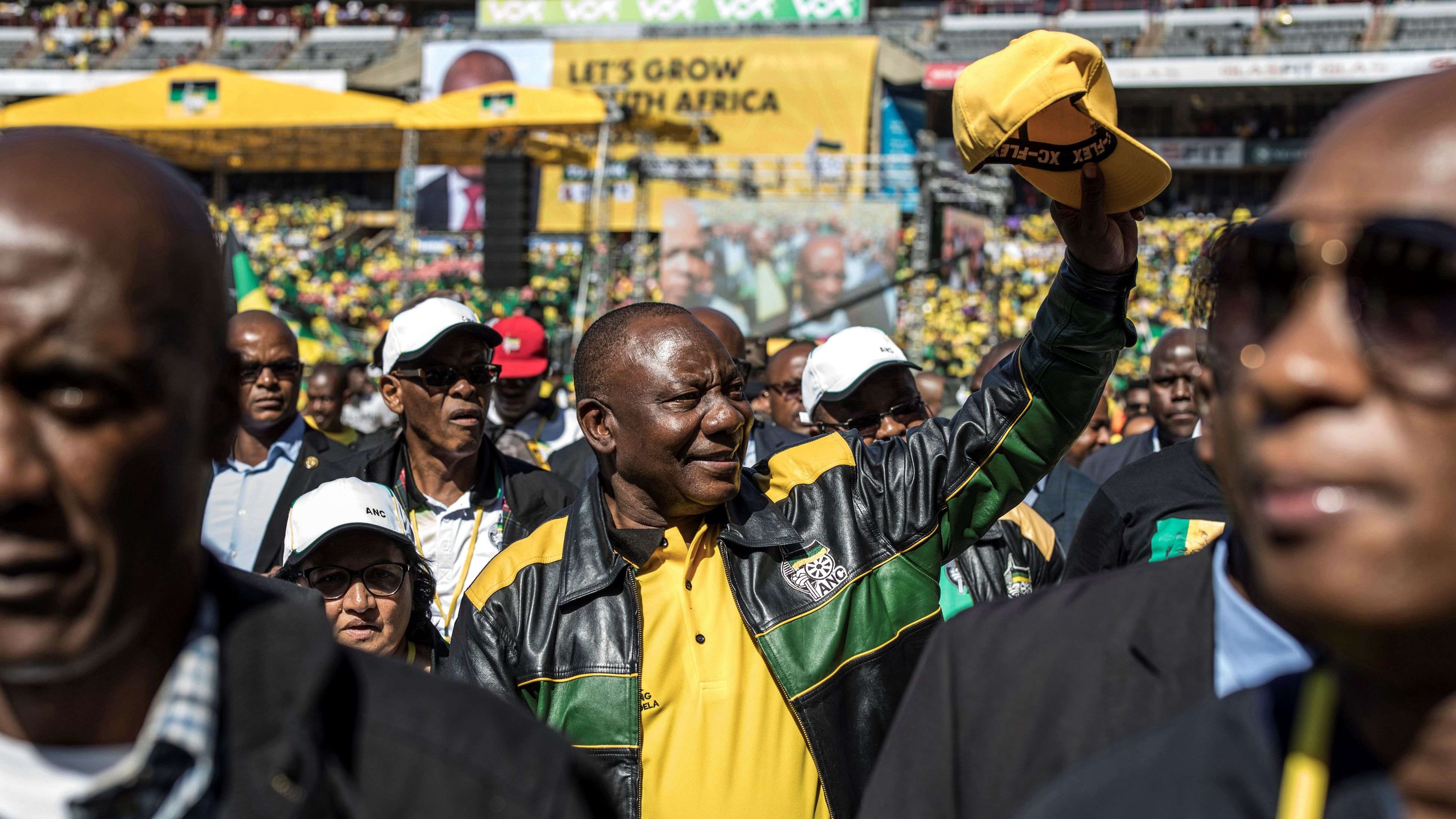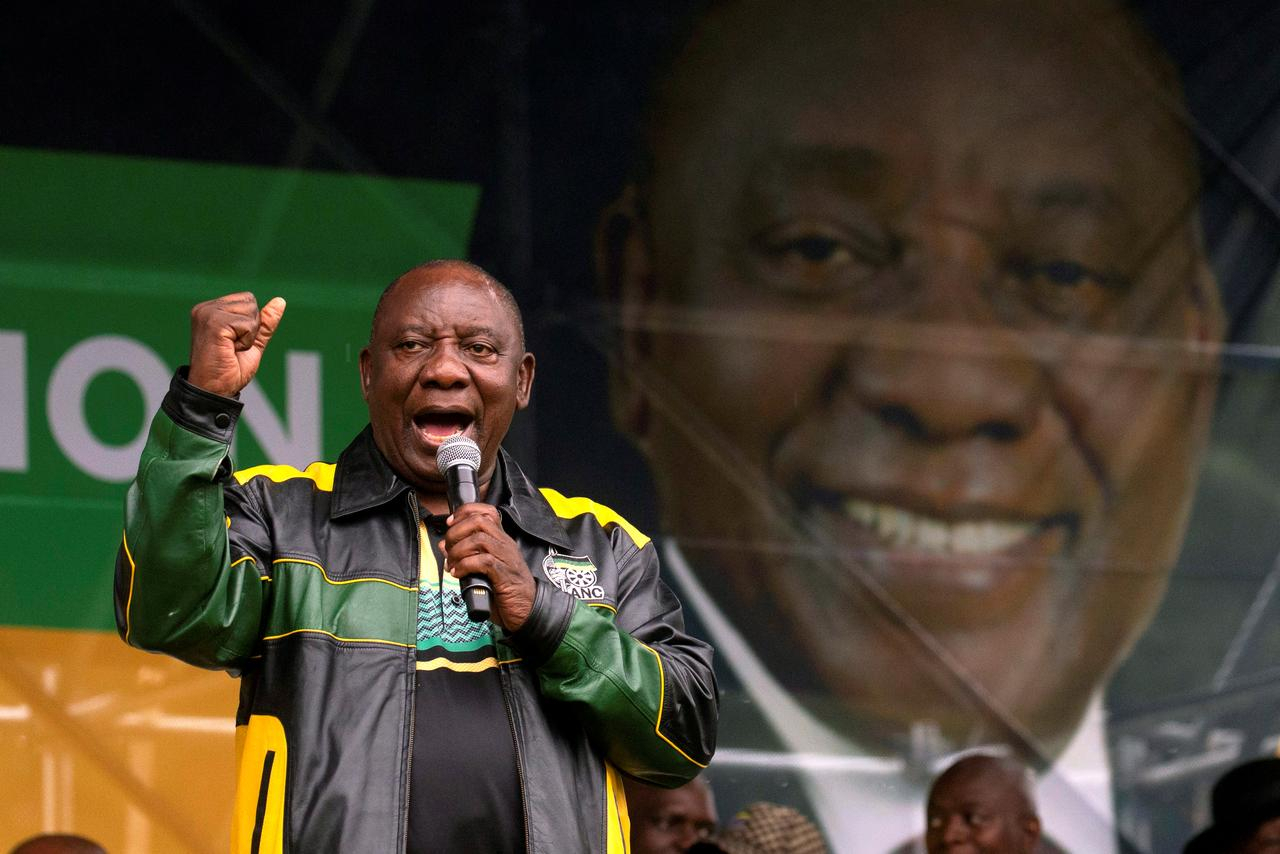
Opinion
09:34, 12-May-2019
Despite election victory, Ramaphosa and ANC still face tough challenges
Yang Zhiguang

Editor's Note: Yang Zhiguang is an associate research fellow at the Institute of African Studies, China Institutes of Contemporary International Relations. The article reflects the author's opinion and not necessarily the views of CGTN.
On May 8, millions of South Africans cast their "X" on the ballot papers to determine who will govern the country for the next five years. As South Africa has a proportional system for national and provincial elections, people vote for parties, rather than candidates.
The final results, released by the Electoral Commission of South Africa on May 11, came as no surprise.
The African National Congress (ANC) won its sixth consecutive victory with an absolute majority of 57.51 percent, but its share of the vote in the national election has fallen below 60 percent for the first time since South Africa held its first-ever free and democratic elections in 1994.
The ANC's closest rival and the biggest opposition party, the Democratic Alliance (DA), followed with a distant 20.76 percent, and slightly declined from its peak of 22.23 percent in the 2014 national election.
But in the provincial level, the DA has for the third time since the 2009 general elections secured a majority in the Western Cape, one of South Africa's nine provinces.
The far-left Economic Freedom Fighters (EFF), calling for the nationalization of mines, banks and other strategic sectors of the economy, won the third place with 10.79 percent, up nearly five percentage points from 2014.
To some extent, EFF's progress signifies the growing enthusiasm of the South Africans for populist politics that has gained ground in global popularity in recent years.
This is a hard-won, perhaps the hardest-won victory for the ANC.

South African President Cyril Ramaphosa (C) waves at supporters, May 5, 2019. /VCG photo
South African President Cyril Ramaphosa (C) waves at supporters, May 5, 2019. /VCG photo
After a quarter century in power, the glory of the ANC is fading away as the "born free" generation, born after the end of apartheid with no memory of the liberation struggle and no sense of loyalty to the party, is getting disappointed with the ANC.
So disappointed they are that they are resorting to opposition parties which they think may do better, or even giving up their rights to vote.
Meanwhile, South African former president Jacob Zuma's nine years in office, marred by a string of scandals, corruption allegations, and mismanagement behaviors, have also badly eroded the ANC's reputation and popularity.
As it shows, since Zuma came to power in 2009, the ANC's share of the vote has been in decline in the last two national and local elections.
In this case, it did bring some fresh hope to the South Africans when Cyril Ramaphosa, the ANC veteran and successful businessman, was elected the president of the ANC in December 2017 and became the president of South Africa following Zuma's resignation in February 2018.
Pledging to fight corruption, tackle unemployment and bring the country back on track, Ramaphosa injected a new sense of accountability to the party's rhetoric.
On the upcoming May 22, the newly-formed parliament authority National Assembly will elect a new president of the country, and Ramaphosa will surely be the one and only.
But looking ahead, either for the ANC or Ramaphosa, the road will not be smooth.
The biggest bump in the immediate future lies in the deepening division and factional feud within the ANC.

South African President Cyril Ramaphosa speaks during an African National Congress (ANC) election rally in Tongaat, near Durban, South Africa, May 4, 2019. /Reuters Photo
South African President Cyril Ramaphosa speaks during an African National Congress (ANC) election rally in Tongaat, near Durban, South Africa, May 4, 2019. /Reuters Photo
Since the beginning of 2017, the ANC had split into two factions, traditionalists and reformers, due to its members' different positions on issues like power succession and development paths.
Among ANC's Top Six and the highest decision-making body National Executive Committee, about half of them are traditionalists or Zuma's followers, which may hinder Ramaphosa's reform agenda, as well as his grip on the party and government.
The EFF even made public statements claiming that some members of the ANC are plotting an internal coup to oust Ramaphosa from his position once the dust from the May elections settled.
The other tricky problem for the ANC and Ramaphosa is how to deal with the complex relationship between economic development and redistribution.
According to the World Bank, South Africa's GDP growth averaged only one percent from 2017 to 2019, lagging far behind sub-Saharan Africa's average of three percent.
Because of the structural constraints affecting South Africa's growth, for example, it is highly and dangerously dependent on mineral exports, the 3-percent-growth that Ramaphosa targeted before the election might be very hard to realize.
On the other hand, many voters have lost confidence in the ANC's ability to improve the livelihoods of ordinary people. One expression of this is in the tire-burning, stone-throwing protests that call for better services and free education.
During its 2017 National Conference, the ANC passed the resolutions to expropriate land without compensation and to implement free education.
These resolutions aimed to reduce inequality between the poor and the rich, but, in reality, they have instead become setbacks to investors' confidence and the country's economic development.
So to speak, like a tightrope walker, if Ramaphosa and the ANC are unable to strike a balance between efficiency and equality, they may eventually fall.
(If you want to contribute and have specific expertise, please contact us at opinions@cgtn.com)

SITEMAP
Copyright © 2018 CGTN. Beijing ICP prepared NO.16065310-3
Copyright © 2018 CGTN. Beijing ICP prepared NO.16065310-3